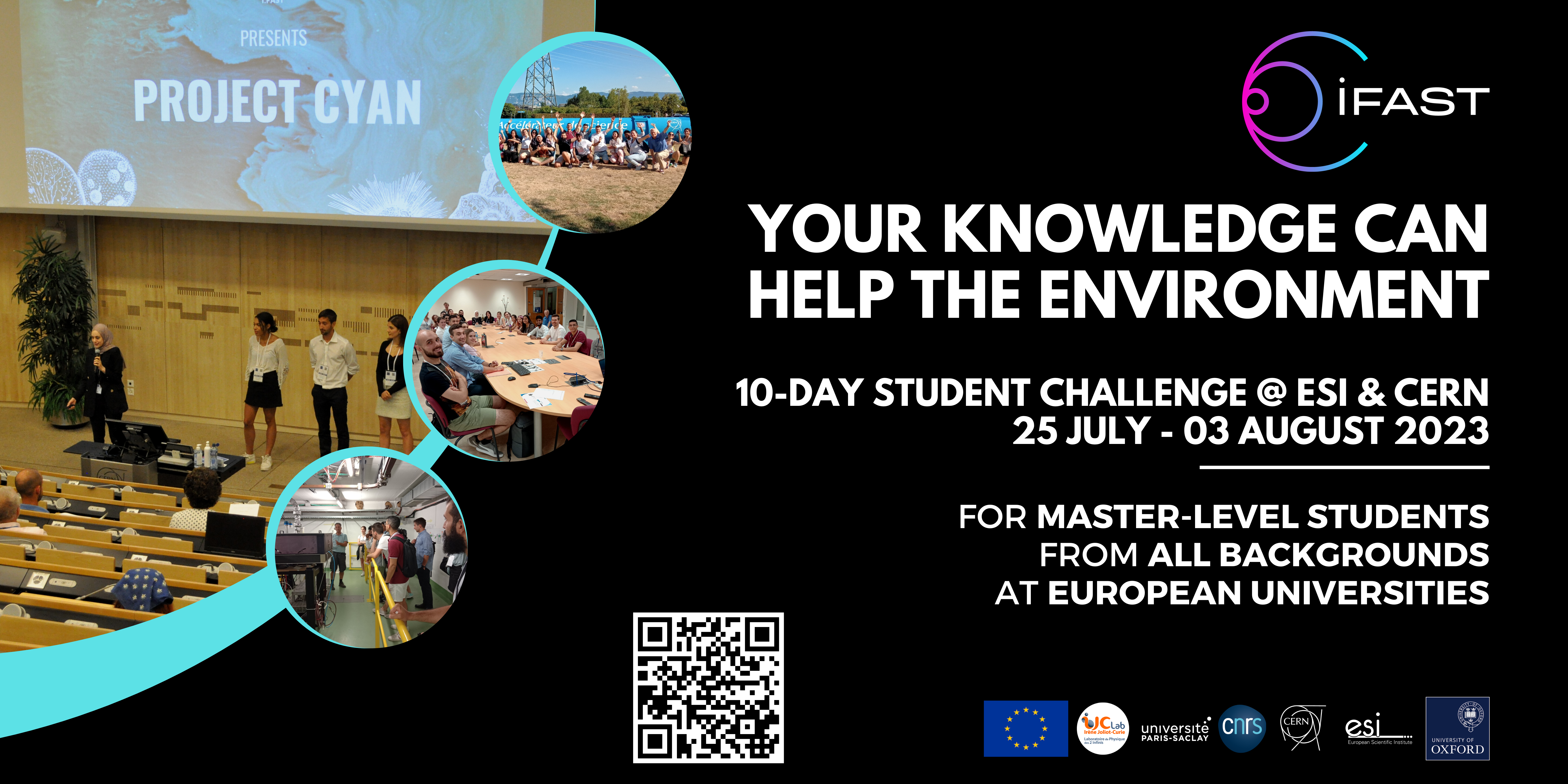Can accelerators be installed on a boat to clean algae bloom? Or can they be fitted on a truck to address soil pollution? Those are examples of ideas that came out of an event held during the past summer in Archamps near Geneva and that will be held again next summer.
The communication and outreach work package of the I.FAST (Innovation Fostering in Accelerator Science and Technology) project includes a task dubbed “Challenge Based Innovation”. This challenge is a 10-day event during which four teams of university students compete to find the most innovative but realistic idea to address a problem using accelerator technology. The topic chosen for 2022 was “Accelerators for the environment”.
The 2022 challenge was held at ESI (European Scientific Institute), comprising 23 students from different countries and academic backgrounds (physics, engineering, environmental science, law, business, communication) working in four interdisciplinary teams. They were affiliated to universities located in 12 different European countries and represented 17 nationalities.
A series of on-line seminars was proposed in advance of the challenge. In Archamps, the participants’ time was split between further expert talks on accelerators and the environment and creative team work to propose innovative applications of accelerators. They also visited several CERN accelerators and research facilities.
On the last day each team presented their ideas in front of a jury made up of scientists and knowledge transfer experts. The winning team proposed installing an accelerator on a boat to treat toxic algae blooms at the surface of polluted lakes. The other proposals included: equipping a ship with an accelerator to study pollution in oceanic gyres; fitting an accelerator on a truck to create a mobile soil-decontamination unit; using the radiation from an accelerator to strengthen the epoxy used in wind turbine blades and thereby extend their service-life.
“I was impressed by the skills and passion shown by the four teams. Such events are a great opportunity for students to learn more about accelerator science and to work on concrete challenges. Their different backgrounds allowed them to think about projects from distinct perspectives – from the scientific and technical to the economic and legal – the way it’s done in actual organisations,” said Frédérick Bordry, the president of the jury and former CERN director of the Accelerator and Technology sector.
After the success of this first edition, a new challenge will take place on the same topic “Accelerators for the environment” from 25th July to 3rd August 2023. The application page is at http://www.ifast-cbi.particle-accelerators.eu/application/. The deadline to apply is 28th February 2023.
The I.FAST project received funding from the European Commission’s Horizon 2020 Research and Innovation programme under Grant Agreement No. 101004730. I.FAST aims to enhance innovation in the particle accelerator community, mapping out and facilitating the development of breakthrough technologies common to multiple accelerator platforms. Within CERN, the project is coordinated by the EU Projects Office.

